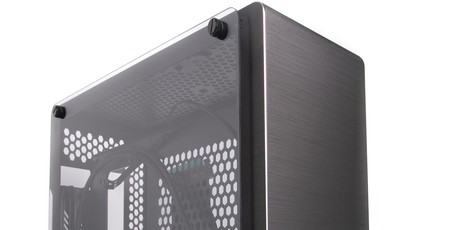
Performance Analysis
With nothing really aiding the CPU cooling, it wasn't surprising to see a nearly identical result to the exhaust fan-less Metallic Gear Neo-G Mini. The smaller confines of the Raijintek case are at least aided by the PSU getting rid of some of the heat. It's not a terrible result, but if you have a more power-hungry CPU than our quad-core, you'll definitely need to opt for a larger cooler than ours or simply opt for the Ophion Evo and an AIO liquid-cooler.
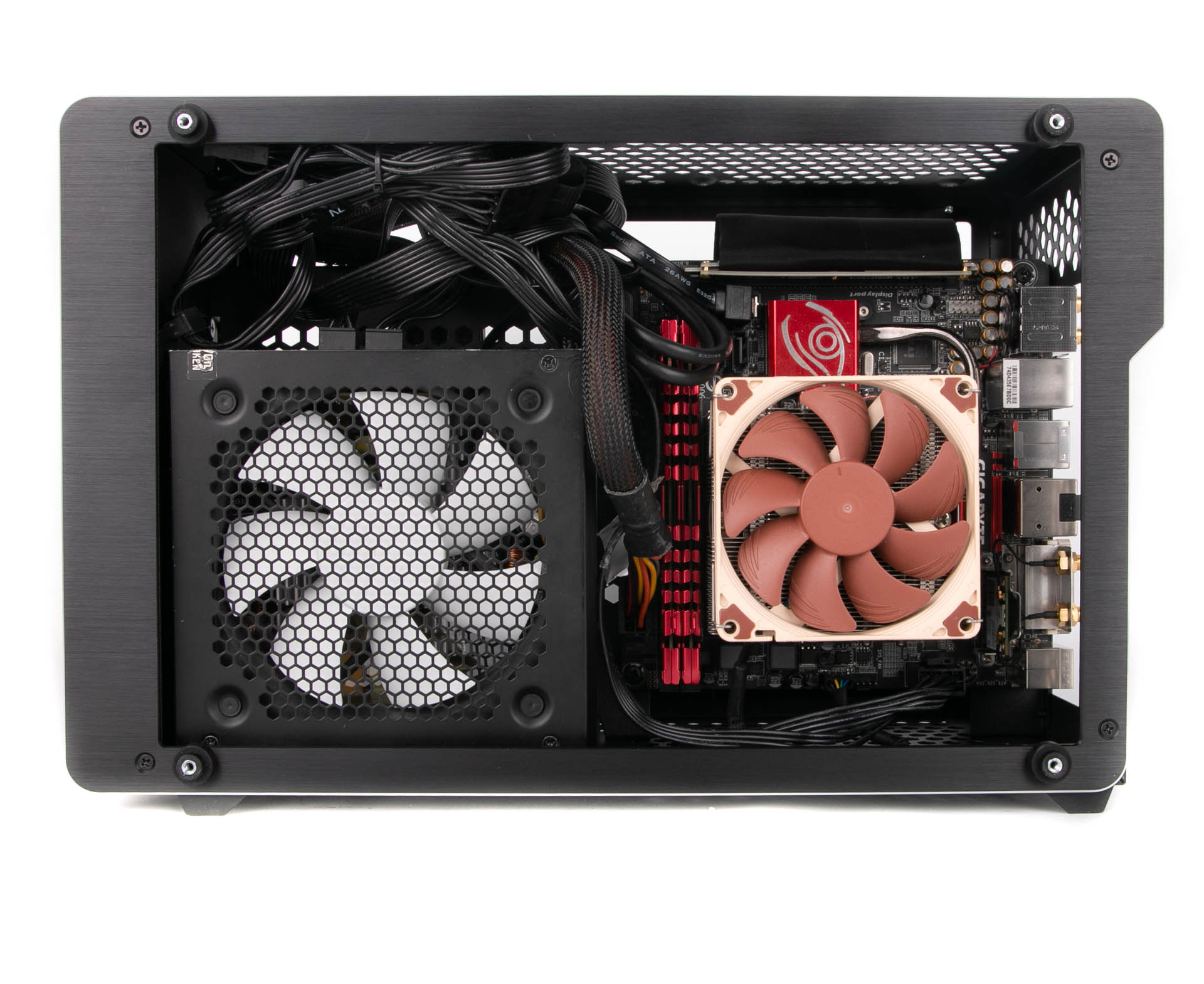
The GPU delta T is again not a catastrophic result given the complete lack of fans but equally means that you should be factoring in a trio of 120mm fans into the price tag to deal with mid to high-end PCs, as we'd expect those to improve both CPU and GPU delta Ts significantly.
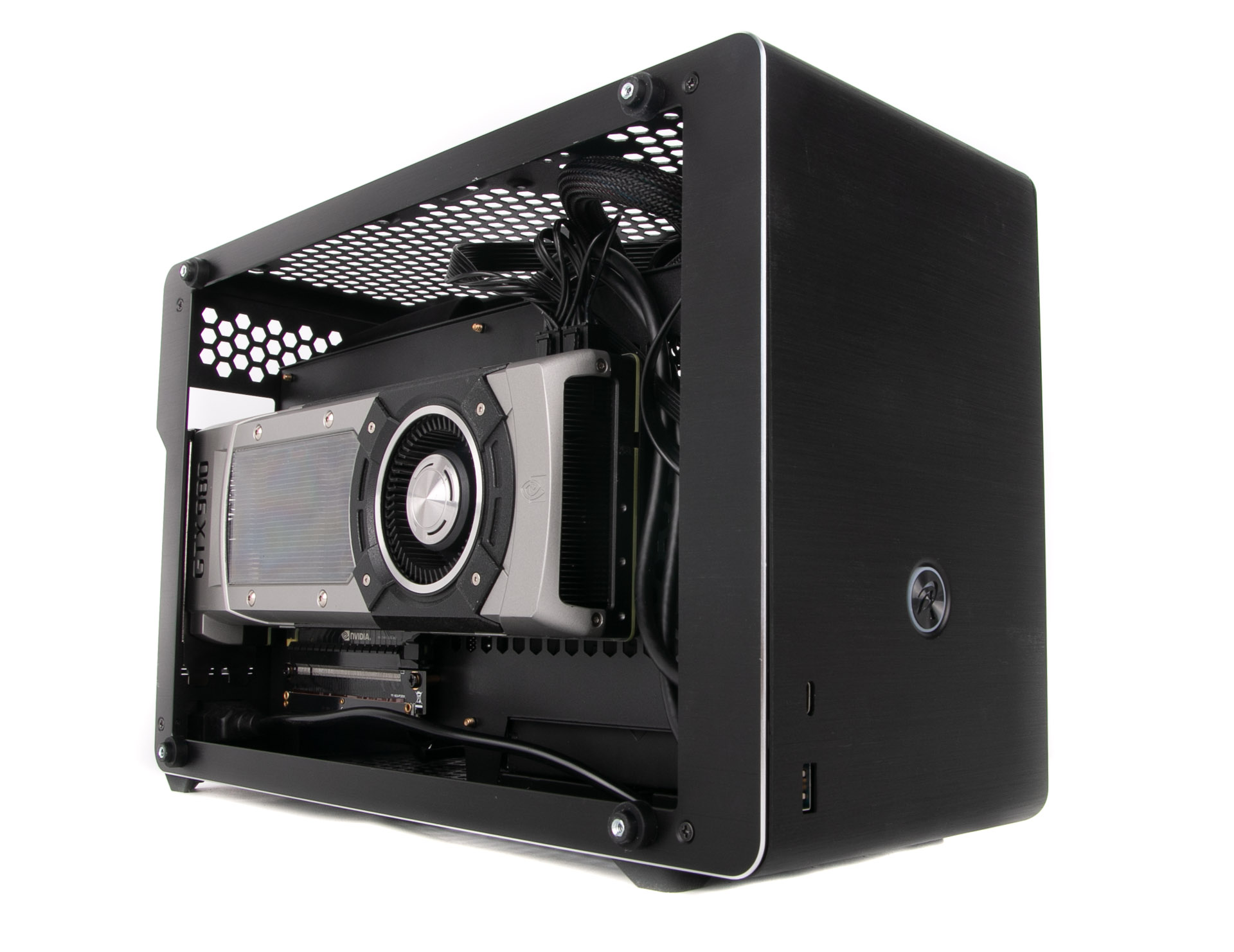
Conclusion
There are always compromises with super-compact cases, and the Ophion certainly appears to dodge many of them and actually creates an attractive, modern, and super-small home for a decent gaming rig. There are issues, though, such as lack of out-of-sight stowage for cables, so keeping cables to a minimum either by using a modular PSU or M.2 SSDs is important. The standard case is also limited to 90mm tall CPU coolers, and the lower 120mm fan mount becomes unusable if you drop a single 3.5" hard disk in its place. There's also the issue of price - at £120 for the standard Ophion and £130 for the larger Evo model, this is considerably more expensive than other new mini-ITX cases such as the Metallic Gear Neo-G Mini, which still manages to include aluminium, a single case fan, and a PCIe riser cable for a sizeable £50 less. It's much larger, though, while the Ophion is more in line with what many view as proper mini-ITX dimensions and is certainly not a scaled down tower.
Given the build quality and compact design, plus it's unique take on mini-ITX layout and the ability to house an ATX PSU, it clearly has plenty of plus points, and combined with a few fans it would definitely be able to house a decent PC. The standard Ophion we're not too sure about - its lack of CPU cooling potential does limit its appeal, and with the larger Ophion Evo costing just £10 more and adding just a few centimetres to the height for the ability to house an extra SSD and more importantly a 240mm radiator with fans in the roof, it's a much handier piece of kit. We can't help but like the Ophion, though, and if we had need of a compact, attractive case and were not planning to use an overclocked six- or eight-core CPU, then it would sit pretty highly on our list.


MSI MPG Velox 100R Chassis Review
October 14 2021 | 15:04

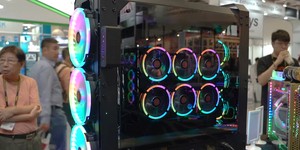
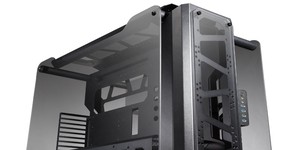
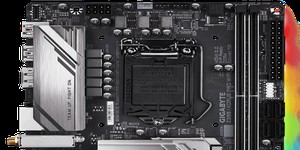




Want to comment? Please log in.